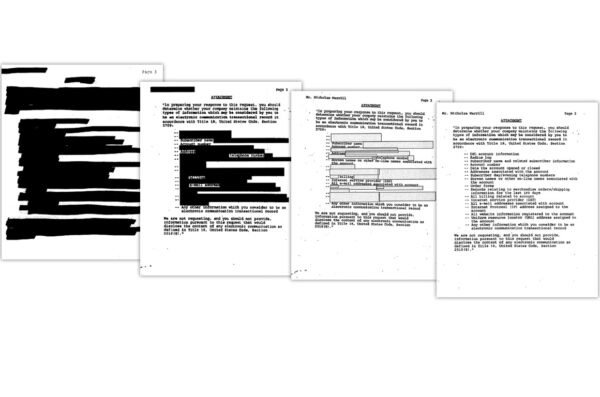Obama Administration Will Not Ask Supreme Court To Take Up National Security Letter "Gag Order" Decision
Government Should Now Lift Gag Order On Internet Service Provider, Says ACLU
FOR IMMEDIATE RELEASE
CONTACT: (212) 549-2666; media@aclu.org
NEW YORK – The government will not ask the Supreme Court to review a decision that struck down Patriot Act provisions that allow the government to impose unconstitutional gag orders on recipients of national security letters (NSLs). NSLs issued by the FBI require recipients to turn over sensitive information about their clients and subscribers. A lower court ruled in 2007 that the gag order provisions were unconstitutional, and the U.S. Court of Appeals for the Second Circuit upheld that ruling in 2008. The government's time for petitioning the Supreme Court for review has now expired.
"We're very pleased that the government has decided not to seek further review of the appeals court's decision," said Jameel Jaffer, Director of the American Civil Liberties Union National Security Project. "The appeals court was right to find that the FBI can't be given the unchecked power to impose gag orders on the recipients of national security letters, and the government's decision not to seek Supreme Court review means that FBI gag orders will finally be subject to meaningful judicial review. As the last few years have shown us, the blanket of secrecy that cloaks the FBI's activities is an invitation to abuse. Judicial review may not end that abuse altogether, but it will certainly discourage it."
The lawsuit at issue, now called Doe v. Holder, was filed by the ACLU and New York Civil Liberties Union in April 2004 on behalf of an Internet service provider (ISP) that the FBI served with an NSL. Because the FBI imposed a gag order on the ISP, the lawsuit was filed under seal, and even today the ACLU is prohibited from disclosing its client's identity.
Because the government has decided not to seek Supreme Court review, it will now for the first time have to defend the constitutionality of the gag order on the ACLU's client. The FBI continues to enforce the gag order even though the underlying investigation is more than five years old and may well have ended, and even though the FBI abandoned its demand for records from the ISP more than two years ago.
"The next step is for the government to drop the unwarranted and unconstitutional gag on Doe," said Melissa Goodman, a staff attorney with the ACLU National Security Project. "At this point it's clear that the gag order serves no legitimate purpose."
Moreover, beyond the resolution of the gag that was imposed in this case, the appeals court decision will require the government to develop new procedures under which it will bear the burden of justifying any gag that it seeks to impose.
"We hope and expect that the new procedures will strike a constitutionally appropriate balance between free expression and national security," said Arthur Eisenberg, Legal Director of the New York Civil Liberties Union.
Attorneys on the case are Jaffer, Goodman, Eisenberg and L. Danielle Tully of the ACLU National Security Project.
More information on Doe v. Holder and NSLs is available online at: www.aclu.org/nsl


